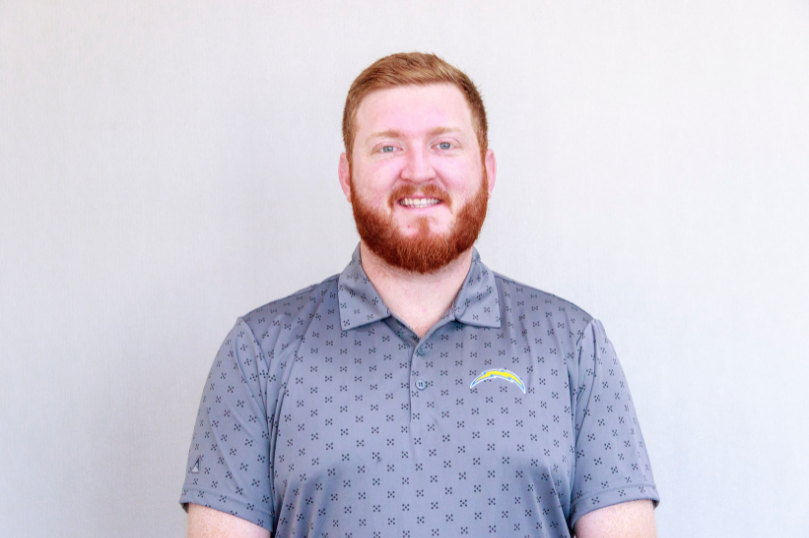By Kerrie Herren, Mu North Province President
One of the attributes that I admire the most about Phi Delta Theta is that it was founded as a social organization. As an undergraduate member, I defined the social aspect as going out with friends on weekends, attending formals and spring break trips. Now as a young professional, as I reflect on my overall undergraduate experience, the most valuable lessons and cherished memories were in line with how our Founding Fathers defined a social fraternity, which is very different than my original understanding of the term. This, along with my current position as an assistant principal of a large suburban high school, ignited my interest in writing this article about what our great Fraternity has to offer graduating high school seniors.
I often see high quality young men graduating from high school who would not only benefit from our great Fraternity, but have a lot to offer in return. However, they often share with me their disinterest in joining a “frat” because of their Animal House misconceptions, or belief that their future goals do not allow time for a simple social club. It is here that I challenge their beliefs, as well as our practices, at least in how we sell PDT to potential new members.
Our Founding Fathers built a social fraternity on the principles of Friendship, Sound Learning and Rectitude. The social aspect allowed the original six members back in 1848 to support each other in growing up as gentlemen while they were great distances from their families. These Founders held each other accountable to these principles, allowing for tough conversations and disagreements among one another when one would stray too far from the teachings of The Bond. This accountability did not cause long-lasting rifts within their friendships, but formed a stronger, more intimate friendship and brotherhood.
Each year, Forbes publishes a piece that highlights the qualities that employers seek in new employees. Recently, the qualities were identified and many fall into the soft skills category. Such qualities as the ability to work collaboratively within a team, make decisions and solve problems, communicate well verbally with others, and organize and prioritize work were all identified. Although I do not agree that fraternity men lack these soft skills, many generalize that today’s college graduates lack these characteristics. I believe Phi Delta Theta’s greatest benefit to our members is that our social organization does in fact teach and allow members to practice these skills in the chapter operations model.
Let me explain why I keep emphasizing “social fraternity.” It is the social structure that our Founders defined that offers the most to our potential new members. High school graduates are experiencing more options now than they ever have before. The days of attending high school for seven hours a day are in the past. Students now explore potential career paths by participating in internships during the day, taking virtual courses from college professors all over the globe, and graduating as a second semester college freshmen through dual credit courses. These students balance these academic experiences with athletic endeavors or clubs such as student council. Young men pursuing these types of opportunities reflect the values PDT should seek in new recruits. However, these young men are not interested in a social drinking club alone. These students are interested in activities and clubs that will make them well-rounded individuals and increase their stock for future employers.
The social fraternity fosters the maturity needed of graduating high school students to be able to turn a friendship into a brotherhood as defined by Robert Morrison and John McMillan Wilson. This brotherhood allows new members to share conversations of common interest, disagreements and the ability to hold one another accountable to a high set of standards. Gandhi once said, “Friendship that insists on agreement on all matters is not worth the name. Friendship to be real must ever sustain the weight of honest differences, however sharp they be.” However, these positive and difficult conversations need to be role modeled and taught during the Phikeia education process.
The democratic and chapter operations model we use allows members to practice, in a real-life scenario, how to have professional conversations with one another. Furthermore, it teaches members conflict resolution and how to disagree while keeping synchronicity. The structure teaches that when the vote or conversation has concluded, the common interest in our brotherhood is stronger than any disagreement. This allows members to hold each other accountable to paying dues, misbehavior that may be unbecoming of a Phi, or the importance of contributing to community service in a manner that builds stronger, well-balanced men, all while maintaining friendships in the chapter.
Today, so much of our lives and communications are online. We text, IM or tweet our friends to talk about our days. We post articles online that we find interesting for others to read and spend roughly eleven hours each day on digital media. Phi Delta Theta teaches members how to have these conversations, and so much more, in person. It allows brothers to share their disagreements without offending each other, as well as how to facilitate a conversation to gain consensus among the chapter for our operational activities. The Fraternity reminds members of simple professional etiquette, such as maintaining eye contact during heated discussions while valuing everyone’s perspective, no matter how much one may disagree. Or, the ability to be vulnerable and stand in front of a chapter to take ownership of a mistake that ultimately will maintain one’s credibility with brothers. Throughout my career, I have had a greater respect for my colleagues who are able to demonstrate these qualities.
In addition to these professional conversations, Phi Delta Theta offers high quality new members so much more than what is learned through high school or family life alone. Through taking advantage of conferences and educational programs, members can learn the importance of professional dress, dinner etiquette, the importance of introducing oneself to successful professionals and the importance of hand-written thank you notes. Members can also learn confidence in the interview structure such as the introduction hand shake, reading social cues throughout the discussion, and how to conclude a conversation, which are taught within the Fraternity structure.
As I think back on how I learned these skills, the social structure of the Fraternity was not the only factor. It was the members that came before me who modeled these practices and coached me through my mistakes that made the difference. As you look on your own campuses and how you can recruit better young men to take your chapter to the next level, do not forget to recruit new members by role modeling and communicating how they will gain and hone these soft skills employers seek through the social structure of Phi Delta Theta.
Kerrie is from Lincoln, NE and attended the University of South Dakota. After graduating, he worked for GHQ as a Leadership Consultant from 2005-07 and traveled the South and Southeast Regions of the U.S. Kerrie currently resides in Kansas City with his wife, Lisa, and is an Assistant Principal of a high school. Kerrie has his master’s and doctorate in Educational Leadership and Policy Studies from the University of Kansas. He continues to serve the Fraternity as the Mu North Province President.





